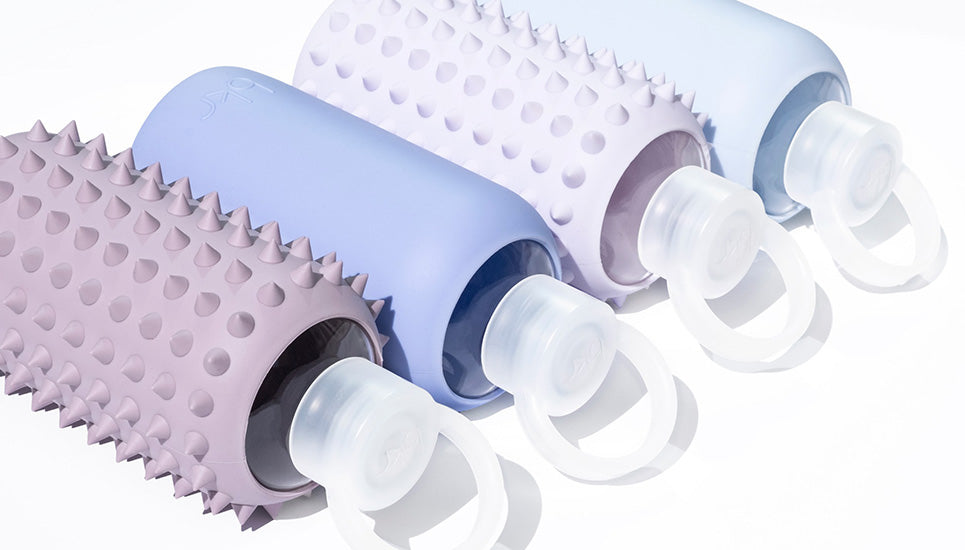Get Your Hydration Facts Straight: 4 Water Myths Debunked

Everyone knows that water is essential for life. Without it, our bodies would literally not be able to function. Drinking water helps to restore moisture to your organs and tissues as well as regulate your body temperature. But, there are many water myths out there about how we should be drinking and what health benefits water may or may not provide. We’re here to help you get the facts straight. These are some of the biggest water myths that we’ve debunked to keep you in the know and help you drink water the right way.
Myth: Water Isn’t Part of Your Skincare Routine
For years, the beauty world adamantly stood by the so-called “fact” that water has nothing to do with your beauty routine. This well-known myth is fiction. Water has everything to do with your beauty routine. Anytime you go to a dermatologist, one of the first questions they’ll ask you is, “How much water are you drinking?” Do you still think there’s no connection? You can invest in the best skincare products, but you won’t see a difference unless you’re properly hydrating your skin. Just like the rest of your body, your skin needs water, too. Your skin is actually the largest organ and it requires water to maintain moisture. If you want to prevent your skin and lips from drying out and achieve that natural glow, you must hydrate. We religiously carry a full kiss kit around with our bkr water balm snapped on top to add moisture to our lips and remind ourselves to sip water throughout the day. Having your lip balm attached to your water bottle is life-altering and we’ve found ourselves less likely to ever leave our water behind now that our balm is a part of it.
Myth: You Must Drink Eight 8 oz. Glasses Per Day
At some point in our lives, we’ve all heard this myth. While 64 ounces per day is a pretty reasonable hydration goal, it isn’t the same for everyone. The amount of water that you should be drinking per day is dependent on many factors, including your weight, activity level and climate. That’s right; your geographical environment makes a difference. If you live in a very dry place or at elevation, your body will lose water more quickly. Further, those who are very physically active need significantly more water every day to replace the water they expend during exercise.

Myth: You Can Drink Too Much Water
Okay, so there is some truth to this one. It is technically possible to drink so much water that you become sick — a condition called hyponatremia. But, most experts agree this number is so high that it would be extremely difficult to drink enough water to make yourself sick. Seriously, we can barely remember to drink water during the day without setting multiple alarms, so it’s pretty unlikely that you’ll ever drink enough water to cause this problem. Still, it’s important to know that it can happen. Hyponatremia usually occurs when someone has imbibed a tremendous amount of water in a short time — yet another reason to drink water throughout the day instead of panic-chugging your 32 oz water bottle at the end of the day. Using your weight, activity level and environment to determine a reasonable hydration goal is the best way to stay within a safe range while giving your body enough water to do its job. There are many hydration calculators you could reference to figure out the perfect daily amount of water for you, or you can always consult with your doctor to triple check you’ve got it right.
Myth: Bottled Water Is Cleaner Than Tap Water
If plastic pollution and climate change are significant enough reasons to stop drinking bottled water and switch to tap, we’ve got another one for you. Bottled water has been found to lack some of the nutrients found in tap water and it’s tested less frequently. Because municipal tap water is regulated, it’s tested on a daily basis — in some places even multiple times per day. According to the NRDC (Natural Resources Defense Council), tap water in metropolitan areas requires testing for certain types of bacteria at least 100 times a month. In many cases, tap water is safer and healthier than bottled water because it is also required by law to be tested for pathogens, virus bacteria and parasites. Bottled water is much less regulated. And don’t get us started on plastics leaching endocrine-disrupting chemicals into your water – it’s a whole topic unto itself and even the thought should be reason enough to quit buying disposables. If you’re concerned about filtering your tap water, there are plenty of filtration devices you can buy. Our absolute favorite simple solution for under the sink is the bluedot x bkr kit. Next time you’re thinking about grabbing a pack of bottled water, reach for your reusable water bottle instead and rest assured that you’re helping your body and your planet.
Get Your Water Facts Straight
Water is literally life. You better recognize, get the facts straight, take good care of yourself, and set your personal hydration goals to fit your lifestyle and your body––and get that glow. Oh, and please, please, please stick with tap water in your glass water bottle. We want the best for you and the Earth.












Leave a comment